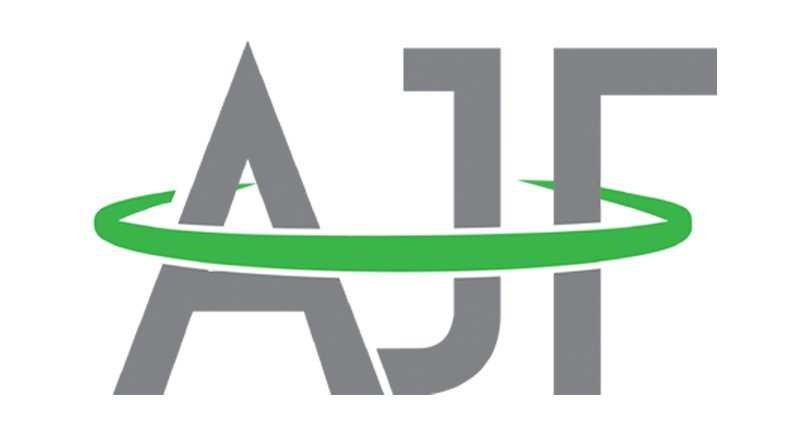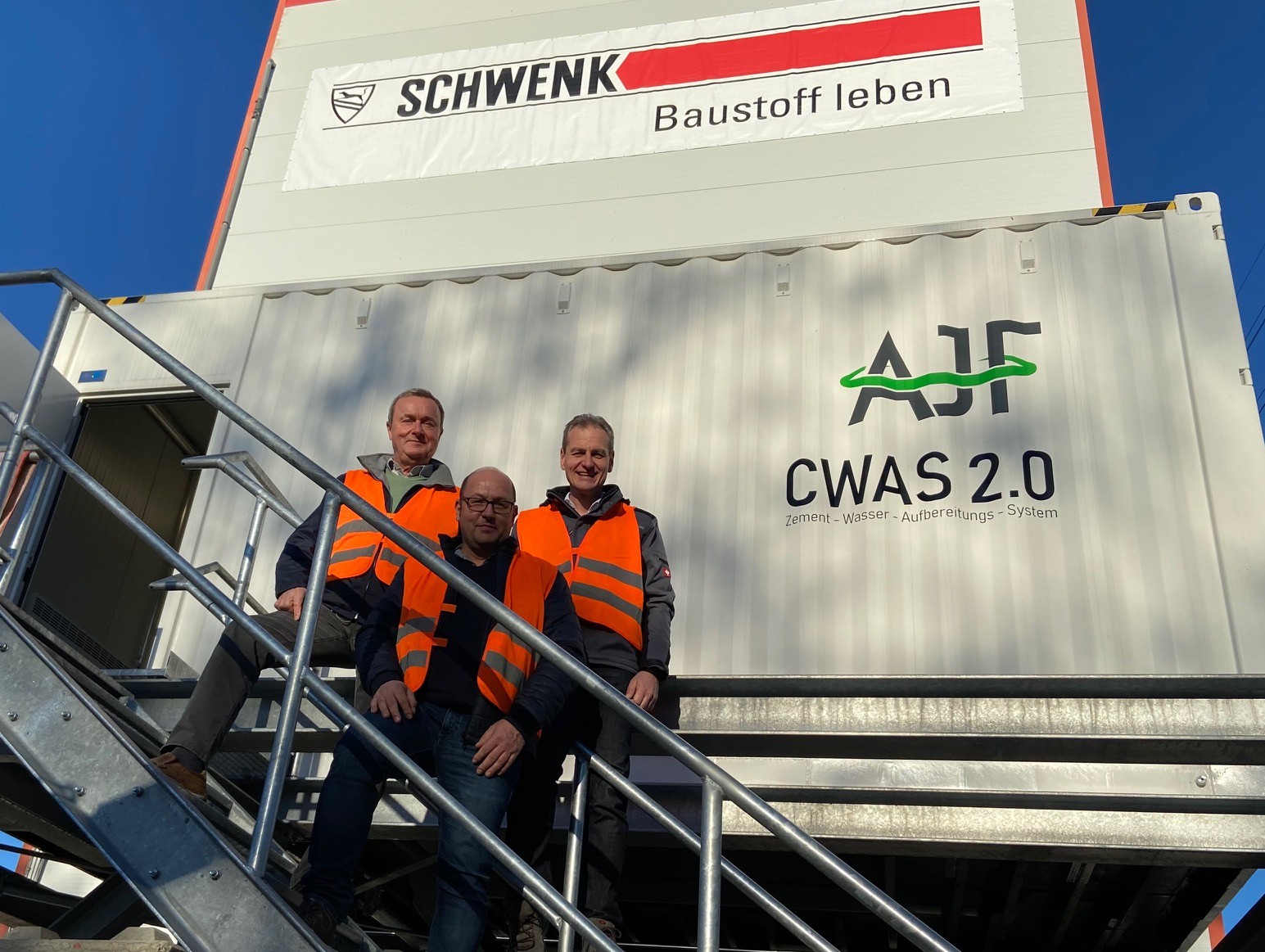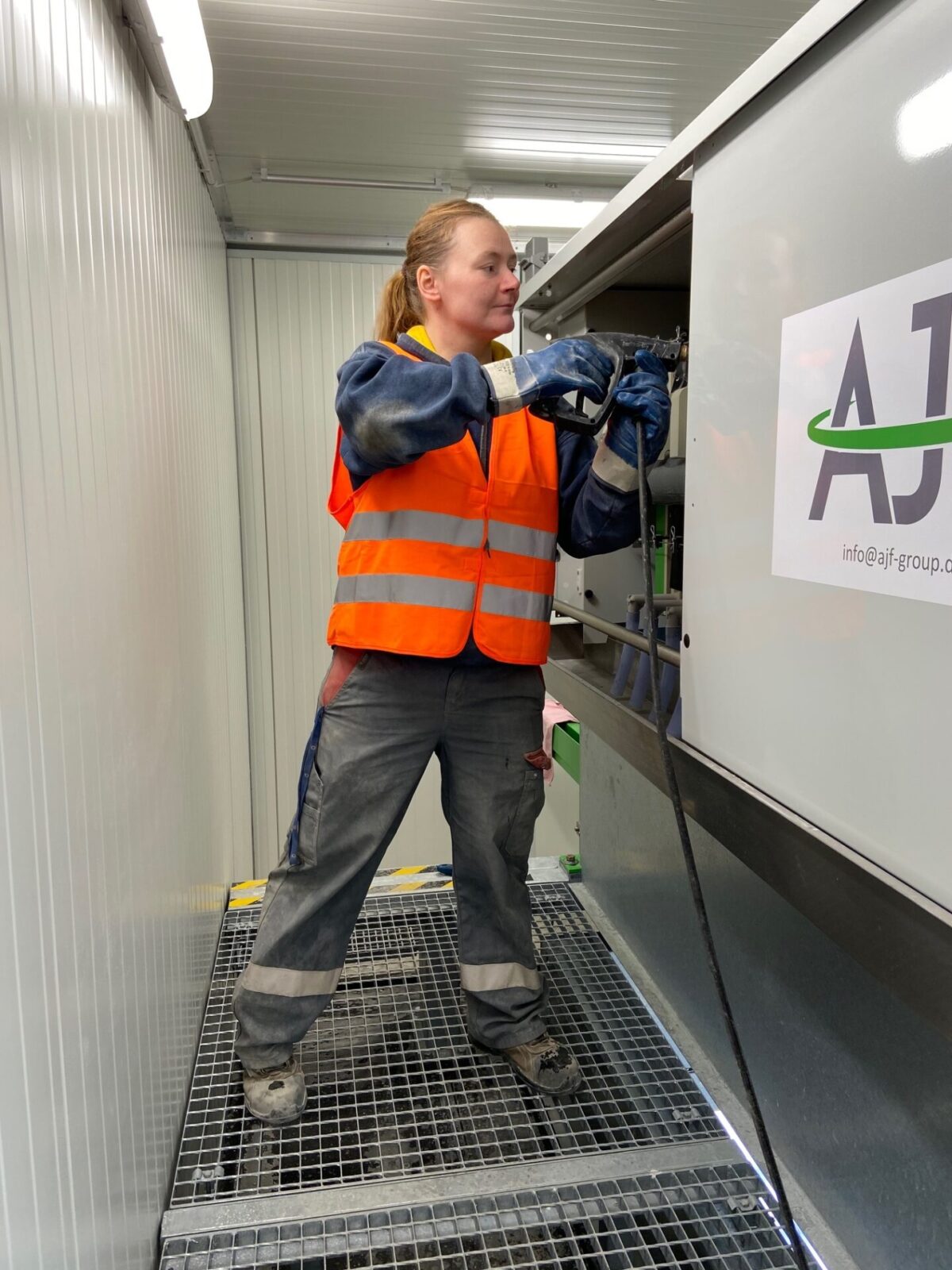The requirements for concrete manufacturers in terms of lower environmental impact and low-emission production processes are constantly increasing. A very critical component is the question of the treatment of the concrete waste water, as the legislator is increasingly restricting the use of fresh water and making the reuse of the concrete waste water a requirement. This is particularly true of large cities and conurbations. Particularly in the conurbations and inner cities, the concrete residue / cement water that is produced during production and the evening vehicle rinsing causes considerable problems for the manufacturers. This waste water can be heavily contaminated with environmentally harmful chromate CrVI and must not be discharged directly into the ground at the construction site. A further use or admixture in the production process is almost impossible. In this case only the cost-intensive disposal remains, provided that a disposal company or a landfill is found which is willing to accept the residual water or the sludge. Schwenk, one of Germany’s largest concrete manufacturers, was also faced with the same problem. For this reason, it was decided to equip one of the largest plants in Berlin’s Rhinstrasse with a modern water treatment plant. After intensive research of the market, the decision was made in favor of the CWAS system from AJF, which sets new standards in the field of concrete residual water treatment.
If the treatment of concrete or a concrete treatment plant is of interest to you please contact us!
“We wanted a fully automated and reliable system that would allow us to reuse our residual concrete water for concrete production. The density in the residual water basin is to be measured continuously and reliably and, if possible, always kept within the valid standard limits,” says Bernd Reitzenstein, operations manager at the Rhinstrasse plant.
The specialists in the field of water treatment of AJF go completely new ways with the realized and patent pending concept. The process starts after the concrete recycling plant and includes the complete infrastructure of the respective plant location. Whether a residual water basin or several sedimentation basins, the integration of cisterns or surface water basins, AJF works out the most effective concept for the respective location together with the plant operator. The focus is always on treating the concrete residual water in such a way that it can be fed into concrete production at any time in accordance with DIN specifications.
All of the process technology is housed in an insulated 20-foot container and is therefore also suitable for winter operation. The complete system is already fully pre-assembled and tested in the factory, so that the assembly and installation effort is reduced to a minimum.
In times of constantly rising disposal and water costs, AJF solutions also contribute significantly to cost reduction for the customer. Time-consuming handling around the residual water basin with cyclones, sludge settling basins or other unclean solutions is therefore eliminated completely.
“We wish to support concrete producers in reducing CO2 as well as the eco-balance and help to conserve raw materials or aggregates. That’s why we only take as much solid matter out of the residual water to achieve the DIN specification,” says Bernd Hahn, CEO of the AJF Group. “At the same time, the deployment of our system is extremely simple and a payback of between 4 to 5 years is realistic, depending on the region.”
In the meantime, the AJF Group can name many of the large concrete manufacturers as customers. In addition to Schwenk, these also include Dyckerhoff AG and the Märker Group. Also, the first systems have already been installed in Scandinavia.



